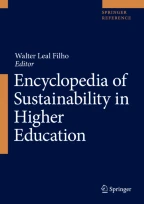
Environmental impact assessment (EIA) is a process having the ultimate objective of providing decision-makers with an indication of the likely consequences of their actions. It is applied internationally as a preventive environmental management tool to ensure that proposed actions are economically viable, socially equitable, and environmentally sustainable.
The natural environment provides four categories of service: provisioning (e.g., food, water, and fiber), regulating (e.g., climate, water, and disease), cultural (e.g., spiritual, aesthetic, recreation, and education), and supporting (e.g., primary production and soil formation). The human impact on the natural environment has increased rapidly over the past century in response to population growth, rapid technological development, industrialization, and agricultural expansion. Transforming society and the world’s economy to a sustainable basis presents the most significant challenge to the twenty-first.